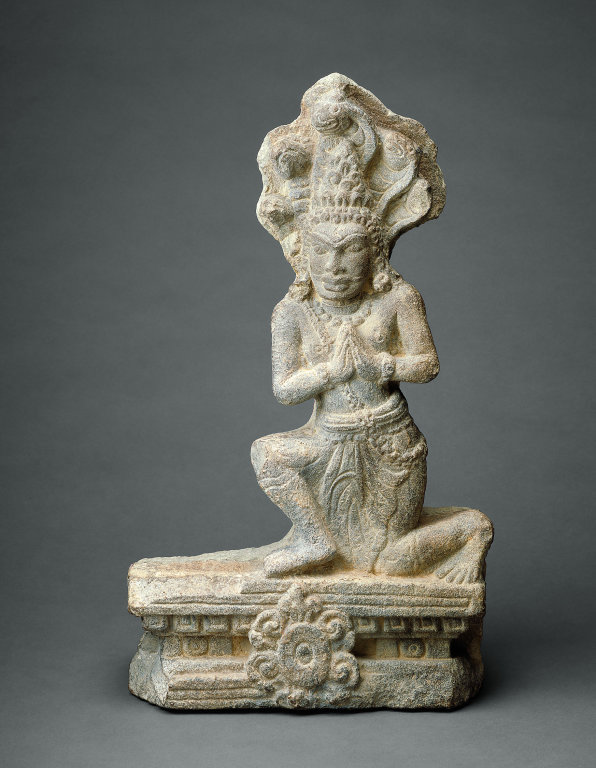
This is an interesting Jataka tale, that follows a rather unconventional route to convey its message. While it has a same-sex relationship as the central theme of the story, the narrator is never judgmental and lets the reader draw her own inferences while arriving at a conclusion that has very little to do (directly) with the relationship.
There was a time when some monks would go out begging, using the alms to build cells for themselves. The begging became so rampant, that people would run away from them as soon as they saw them in the village. Once a senior monk went out for alms and noticed that people were running away from him on seeing him. He called for a meeting of all the monks and learnt that the people felt troubled by the incessant pestering of the monks. He scolded the younger monks and told them the following story.
Once there lived two brothers who had decided to renounce the world on the death of their parents. The elder brother took up a hut at the Upper Ganga and the younger brother took up his hut in the Lower Ganga. Once the king of the serpents, Manikantha, left his palace and was strolling on the banks of the Ganga after assuming the form of a human. He saw the younger brother and they started talking and soon grew fond of him. In due course, they were inseparable. The two met frequently and whenever the serpent king left, he would cast off his body and embrace the ascetic within his folds and hold his hood over his head for a little while. Then, when his love was satisfied, he would let go of the ascetics body, bid him farewell and return to his palace.
While the ascetic enjoyed the serpent king’s friendship, he feared the parting act and this fear took a toll on his health. He began to lose weight and soon was very thin and disheveled. When his elder brother saw him one day and asked him about this failing health, the younger one told him all about it. The elder one then asked him, if there was something that the King was very fond of, like an ornament or something. To this the younger one mentioned a jewel. The elder one suggested that the next time the serpent came and sat next to him, he should beg for the jewel, and the next day stand at the door and beg for it and the third day, stand at the bank of the river and beg for it.
Next day as soon as the serpent sat next to the ascetic, the monk begged for the jewel. The king immediately got up and left the hut without saying anything. As advised, the next day, the king left even before entering the hut and on the third asking, the king went back into the river and before leaving the king mentioned that he would not visit him anymore as the jewel was an important possession. The serpent further said that what the monk was begging for was very important for him and all his prosperity was due to the jewel and that he would never part with it. The monk was asking for too much! With this, the serpent plunged into the water, never to return. Later, when the elder brother visited the ascetic, he noticed that his brother had become even more pale and weak. Upon questioning his brother he discovered that he missed the serpent king too much and was pining away for him. To this the elder brother surmised that one should never beg from those who are dear to them and excessive begging makes one hated, just as it happened with the younger monk. He then went on to advice his brother about the ill-effects of asking for too much. The two brothers then spent the rest of their lives, working hard to become worthy of attaining spiritual enlightenment. Thus ends the story which I believe was against begging!
Story by: Utkarsh Patel
Source: “Same-sex love in India” by Ruth Vanita and Saleem Kidwai (Manikantha Jataka – Jataka 253)
Location: Pan-India
Image source: http://www.artic.edu/aic/collections/artwork/151348